Introduction
Dubai is the second largest emirate within the union of seven United Arab Emirates and at the same time the largest and most populous city in the country (population 2,788,929 as of June 8, 2018). The ruler of the emirate is Sheikh Mohamed Bin Rashid Al Maktoum, who is also the Prime Minister of the UAE. The family, which comes from one tribe, has been ruling the emirate since approximately 1830.
































Thanks to its excellent location almost halfway between Europe and the Far East, Dubai has always been the commercial center of the entire Persian Gulf. In the 1950s, oil was discovered in neighboring Abu Dhabi, which began production in 1962. It was not until 1969 that the first historical export of this commodity from the Dubai emirate took place, which launched an unprecedented economic recovery and boom that continues to this day.
Dubai today is a fully diversified economy, with only 2% of GDP coming from the oil industry (in 2007 the emirate became a net importer of oil and natural gas), with the dominant sectors being transport, logistics, tourism, retail, real estate and construction. Dubai is currently a significant financial center, the largest real estate market in the world and at the same time the largest tourist destination in the region.
The official religion is Islam, which is closely linked to local culture, its customs and traditions. Despite this, Dubai is a cosmopolitan and relatively liberal society with a high degree of globalization. The local population makes up only 10% of the total population. The rest are foreign immigrants who are the dominant component of the workforce across all sectors.
Clothing
Summer clothing is suitable for visitors throughout the year. In the winter months, we recommend bringing a warmer sweater or windbreaker for cooler nights. The UAE is a Muslim country and therefore visitors are expected to dress more conservatively in public. Beach clothing and swimsuits are accepted in hotels and on beaches. Nudism or sunbathing topless is prohibited. In luxury hotels, you should have formal attire for dinner (men long pants and shirt, women longer skirt, pants or dress).
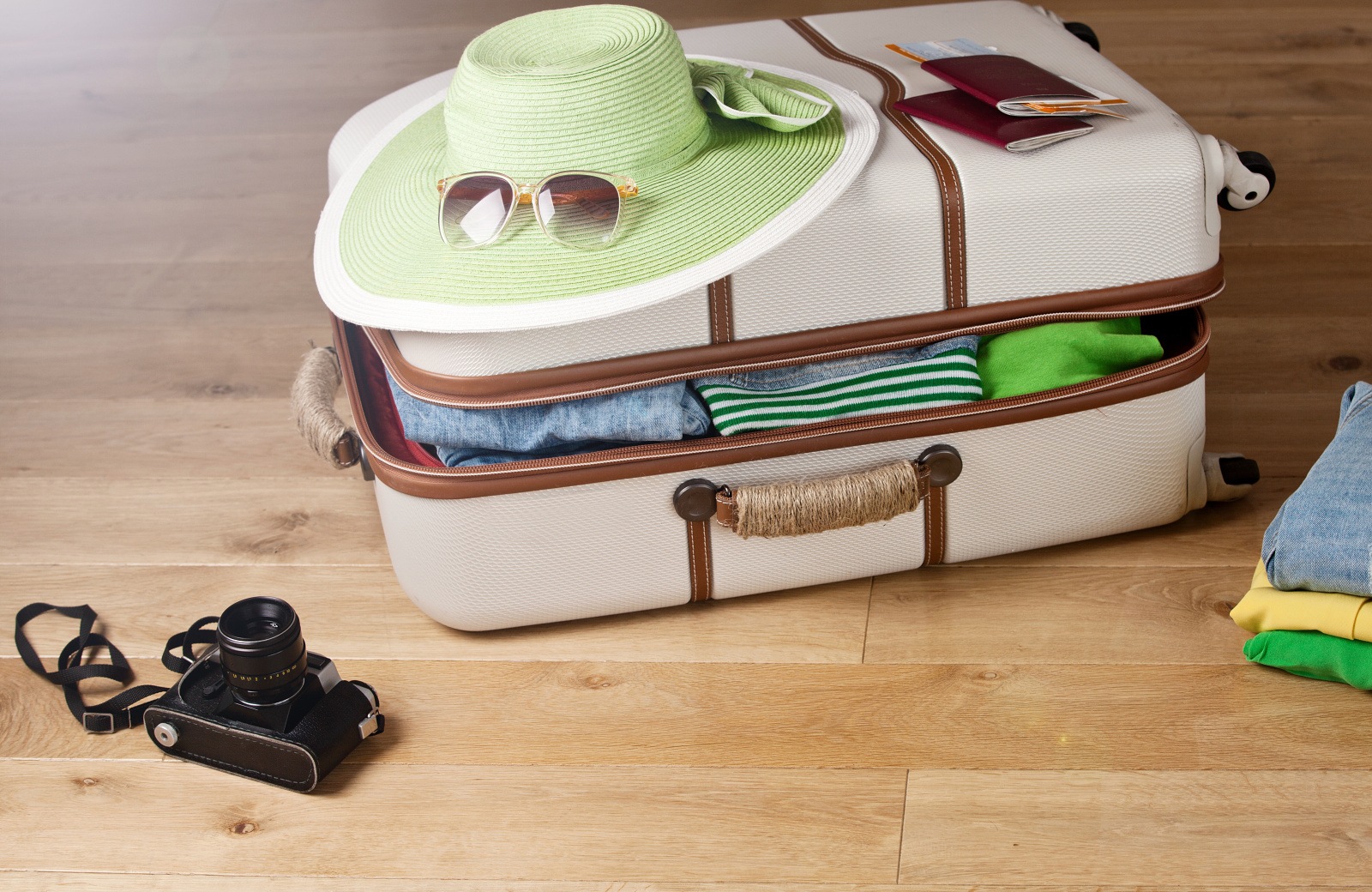
You can easily recognize the local population by their traditional clothing, which they wear as a sign of pride. Men dress in white kandura with a white headscarf (dishdash), secured with two black rings (Agal). Women wear a black abaya with a veil to hide their figure and hair (hijab). Some women wear niqab or burqa, which cover their entire face. Men holding high positions in government wear them in various color variations, such as blue, gold or red, or wear a massive cloak (bisht) with decorative trims.
Representative office for UAE
Embassy of the Slovak Republic in UAE
Embassy of the Slovak Republic
Al Mataf Street, No. 16, Villa 2
Al Bateen, Abu Dhabi, United Arab Emirates
Tel: +971 2 681 7705
Email: [email protected]
Web: www.mzv.sk/abudhabi
Working hours: 09:00 to 17:00
Distance and flight
Austria
United Arab Emirates
Weather
Dubai and the United Arab Emirates have a tropical, dry climate. The best conditions for visiting Dubai are in the months from September to May. Ideal air and water temperatures are specifically in the months of March, April, May, October and November. The highest temperatures
are in the months of July and August, when temperatures at noon can reach 42°C to 45°C.
On the hottest days, temperatures can reach up to 48°C. This period also has the highest humidity. Precipitation occurs only rarely. The most rainfall is in January. Thanks to favorable and sunny weather, Dubai and the entire Emirates are among the popular holiday destinations throughout the year.
|
16
February
Monday
|
24°C | Sunny | 21°C | |
|
17
February
Tuesday
|
25°C | Sunny | 20°C | |
|
18
February
Wednesday
|
26°C | Sunny | 21°C | |
|
19
February
Thursday
|
27°C | Sunny | 21°C | |
|
20
February
Friday
|
25°C | Sunny | 22°C | |
|
21
February
Saturday
|
25°C | Sunny | 21°C |
Visas and obligations
Under the Agreement between the European Union and the United Arab Emirates on the abolition of visa requirements for short-term stays, holders of Slovak Republic travel, diplomatic and service passports may stay in the United Arab Emirates for a maximum of 90 days during any 180-day period from May 7, 2015.
For all travelers, the validity of the travel document must be at least six (6) months after the planned return from the stay, otherwise the holder will usually not be transported to the country even by airlines.
When traveling with a minor child with only one parent, it is recommended to have a stamped consent of the other (non-traveling) parent in English - from a notary or registry office of the Slovak Republic.
Sample consent in English
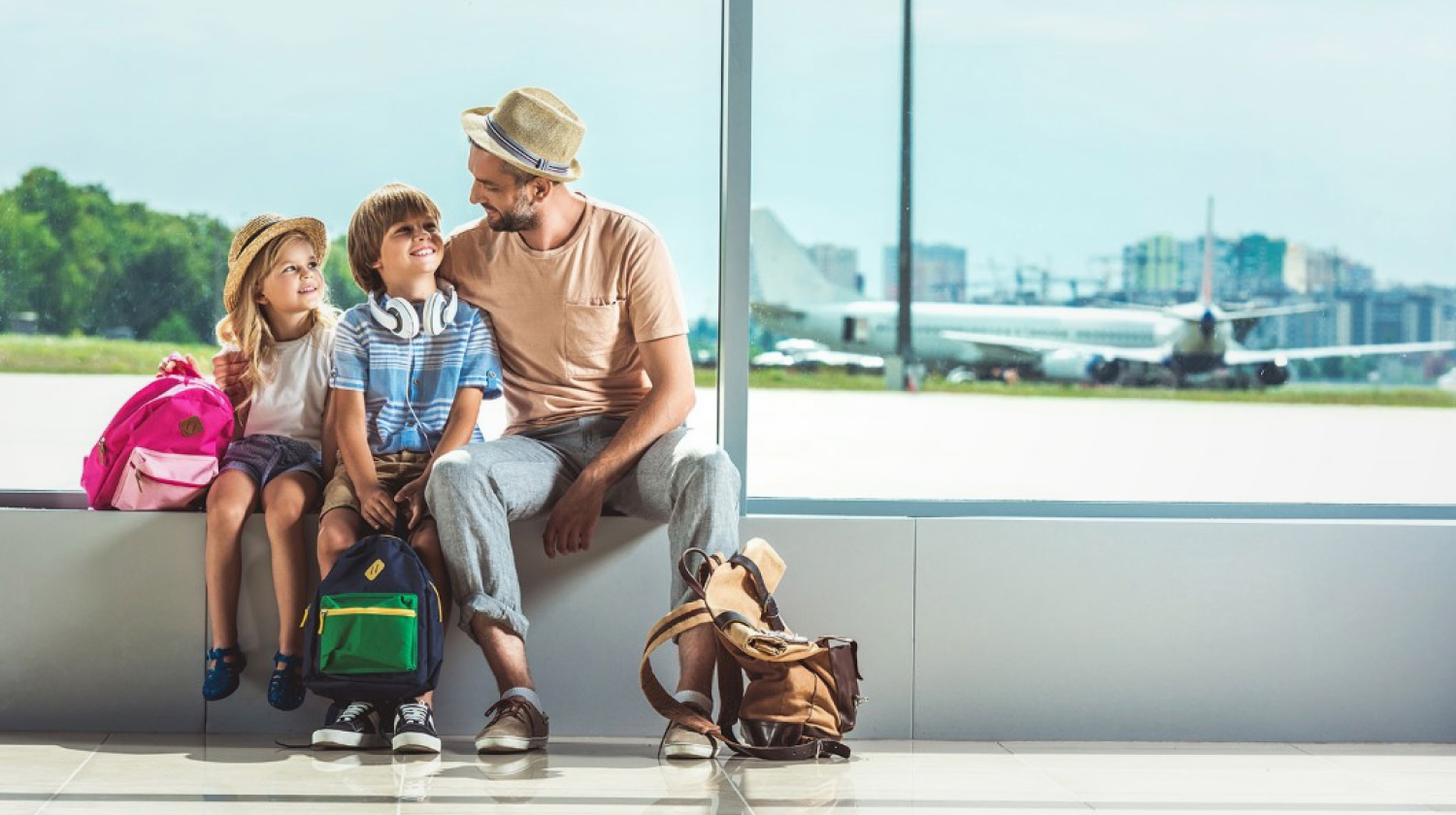
Customs regulations
Customs regime is liberal. It is permitted to import cigarettes, 1 liter of alcoholic beverage and 2 liters of wine for personal consumption. This does not apply to visitors professing the Muslim religion. Strict prohibitions and restrictions apply to the import of drugs, weapons, erotic and pornographic literature. The listed items are subject to prohibition and in case of violation are subject to confiscation with penalty (fine, expulsion).
Safety
Dubai and the United Arab Emirates are among the safest countries in the world. Due to strict penalties and effective police, the Emirates enjoy very low crime rates. In 2017, the Emirates were declared the second safest country in the world after Finland (World Economic Forum).
Healthcare
Citizens of the Slovak Republic pay for medical treatment in full from their own resources. There is no agreement on the provision of free healthcare between the UAE and the Slovak Republic.
We therefore recommend getting insurance before the trip.
Due to the intensity of solar
rays, it is recommended to use sunscreen with high UV filter and sunglasses.
Vaccination
For regular tourist visits to the UAE, no mandatory vaccination is required. Consult possible health risks with your doctor or in our hospitals in the departments of foreign diseases, or find necessary information on the website www.uvzsr.sk
Drinking water
Tap water is utility water and is produced by desalination of seawater. It is not recommended to consume it. Drinking water is bottled in plastic bottles and can be purchased in restaurants or shops.
Internet and electricity
In the UAE, it is 220 V with English-type sockets with three pins. An adapter is usually needed to connect devices. It is available free of charge at the hotel reception. Chargers for cameras, mobile phones and razors can be used without problems.
Natural disasters
In the Emirates, the most common natural event is sandstorms. Their occurrence cannot be predicted in advance. On the other hand, several days of rain accompanied by strong winds may occur.
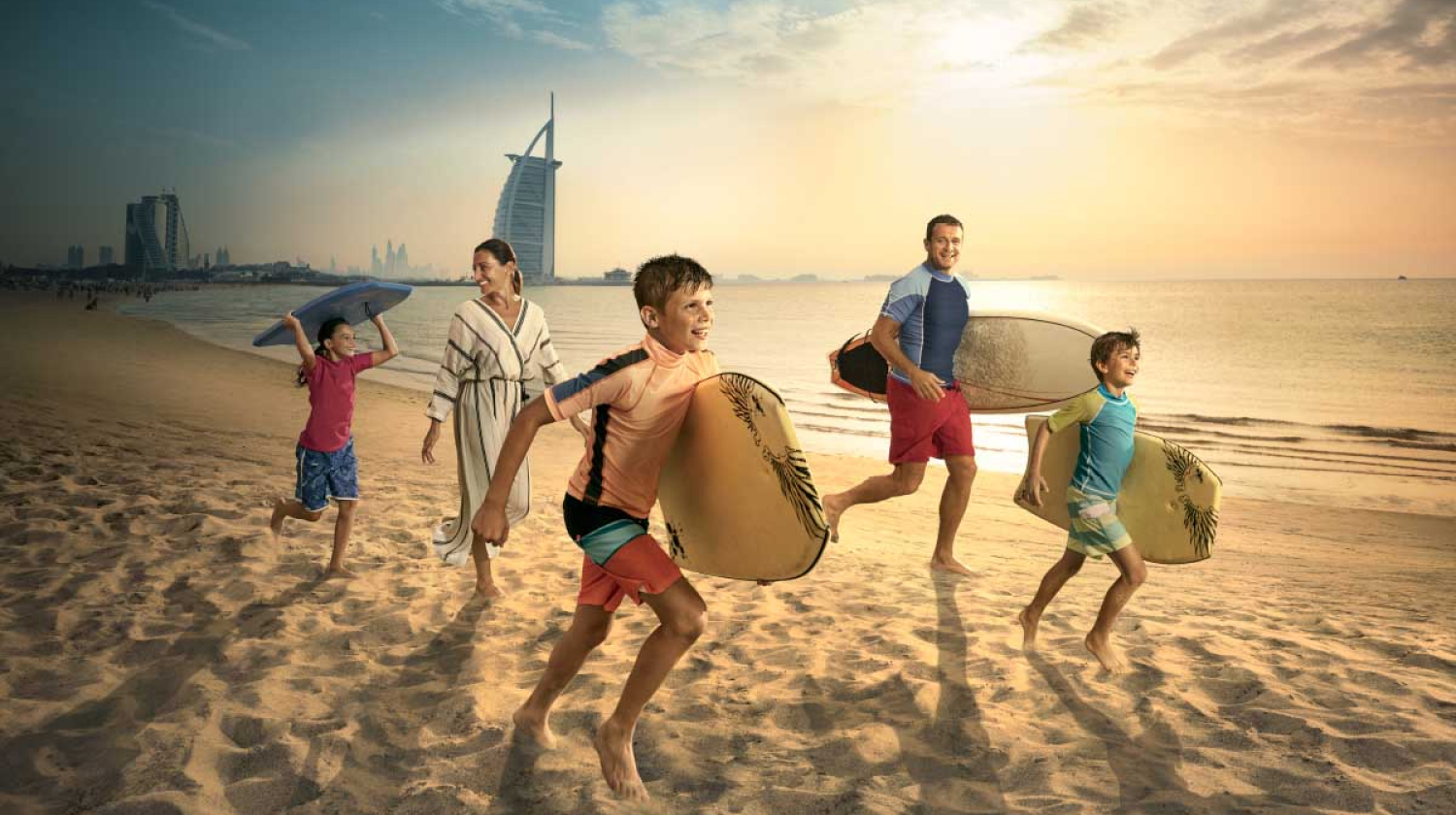
Important contacts
| Firefighters | 997 |
| Ambulance | 998 |
| Police | 999 |
| Consular emergency | 00971 506 628 920 |
| Representative office of the Slovak Republic in Abu Dhabi | +971 2 681 7705 |
Money and prices
Dubai is very accessible to tourists and accommodates them in many ways. Finances are no exception. The local currency of the UAE is the Dirham (Dhs / AED), which is divided into 100 fils. Currency exchange can be carried out without restrictions in hotels, exchange offices or banks. The most favorable rate is in banks. The most well-known exchangeable currency is USD, with which direct payments can also be made in shops. However, it is recommended to pay in local currency. Other currencies such as EUR are also exchanged, but the rate changes daily.
International payment and credit cards are accepted (American Express, MasterCard, Diner's Club, Visa). Visa Electron cards can also be used for payment in shops. When asked in which currency the card payment should be made, we always recommend choosing the option to convert to the local currency Dirham.
When negotiating discounts, it is more advantageous to pay in cash and in Dirhams.
Indicative rate in USD, 1 USD = 3.65 Dhs
Indicative rate in EUR, 1 EUR = 3.80 Dhs
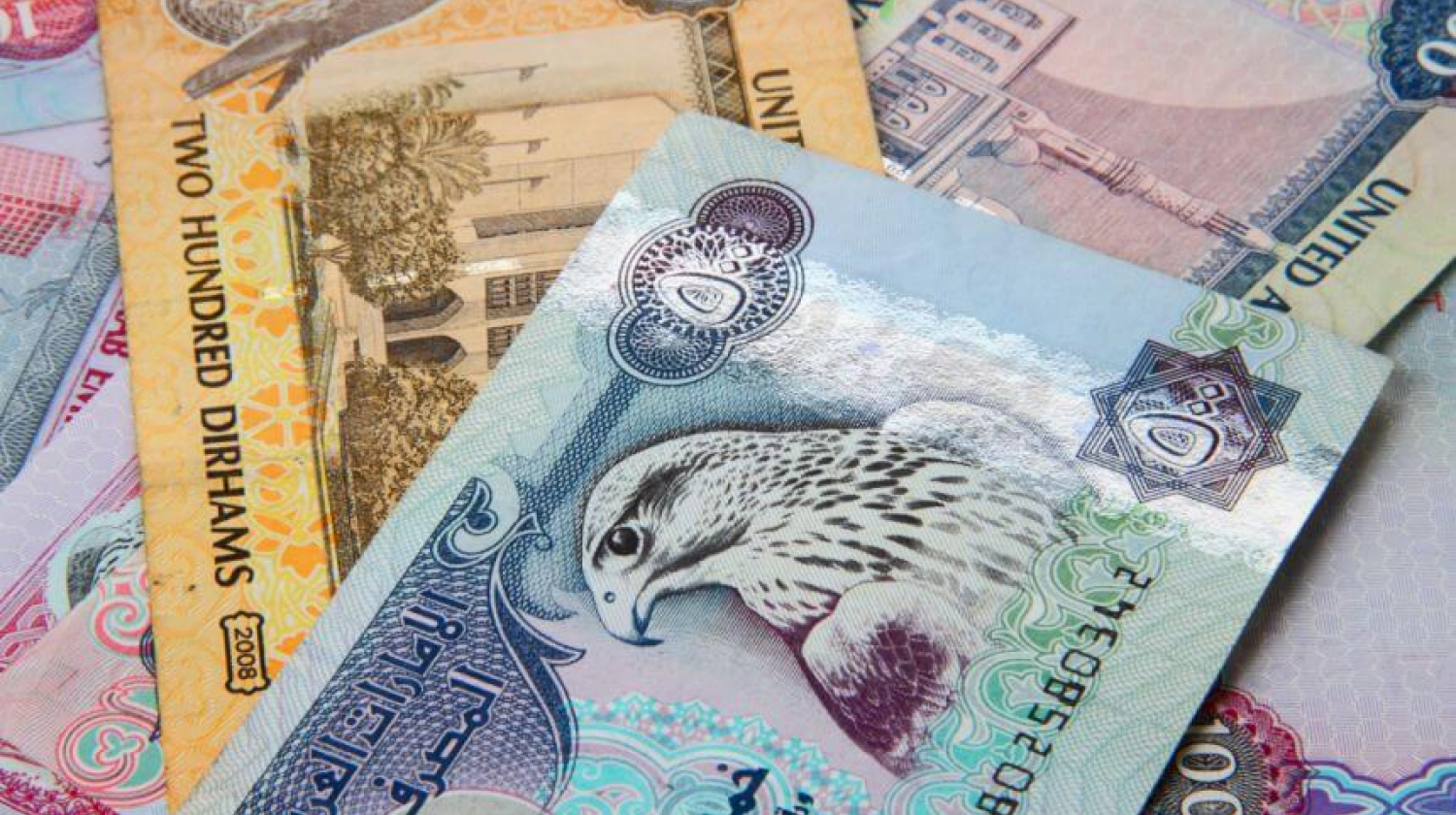
Tipping
Transport and transfers
Most beach hotels provide shuttle bus, free transportation for their clients to and from Dubai center. Transportation by taxis is also very accessible and in acceptable price ranges. Taxi services in the Emirates are state-owned. Although it is possible to pay with dollars in the Emirates, some taxi drivers refuse them as payment. So it is better to always have dirhams with you if you are not willing to argue with the driver.
Public transport is used mainly by immigrants from Asia. The metro was officially put into operation on 09.09.2009. Its largest part, from a total length of 52 km, operates above ground and in the old part of Dubai underground. All stations and trains are fully air-conditioned. Shuttle bus service operates between metro stations and important places.
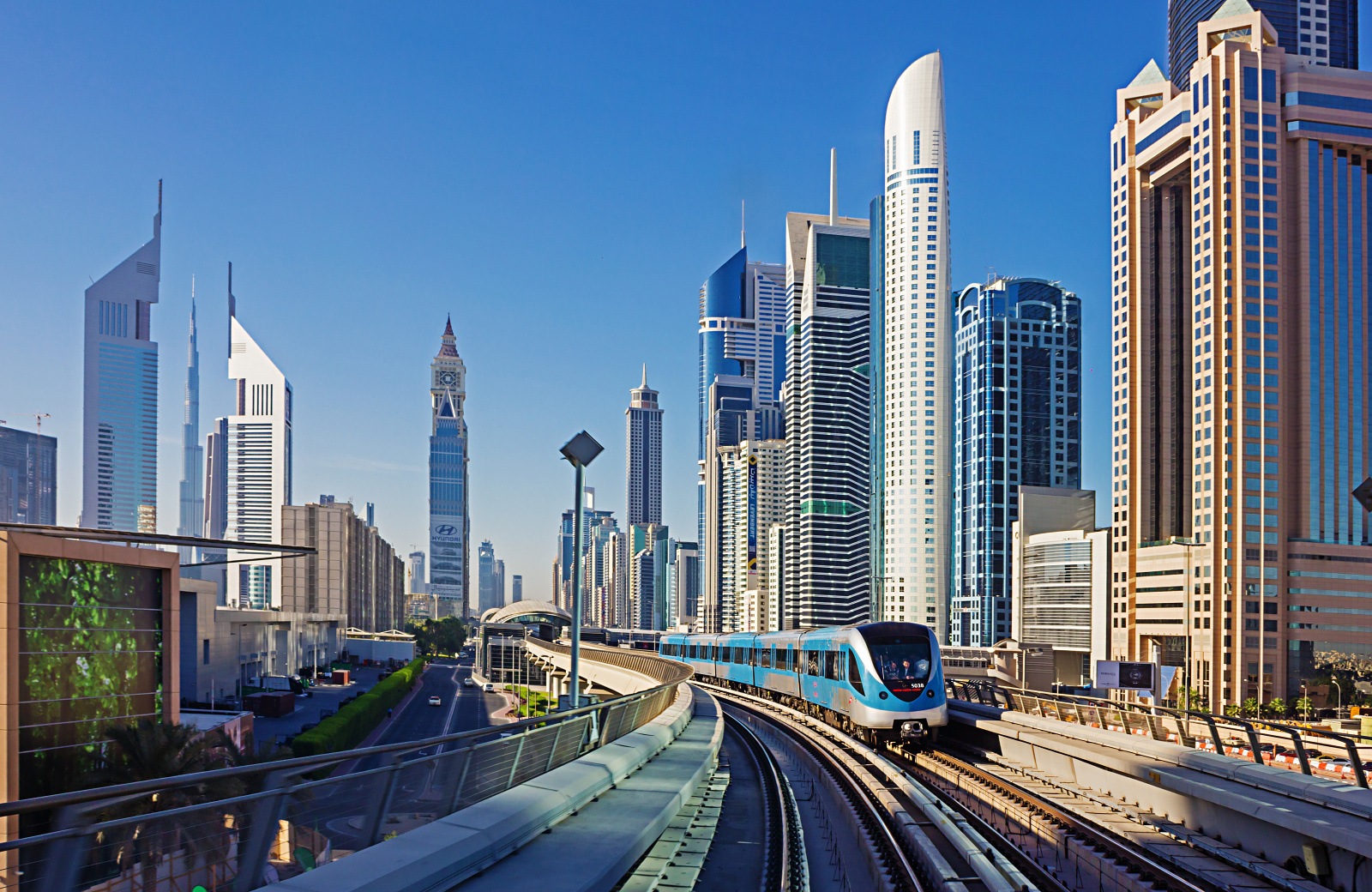
Within the urban areas of Dubai Marina, Jumeirah, Umm Sequem and Al Sofouh, you can use the new modern tram. Large water taxis are also popular, which have stops in Dubai Marina, on the palm island Palm Jumeirah, in the Business Bay urban area
(Downtown) and on the shores of Dubai Creek.
Transport services UBER and Careem are also available in Dubai and Abu Dhabi. Just download the applications and have a registered valid credit card.
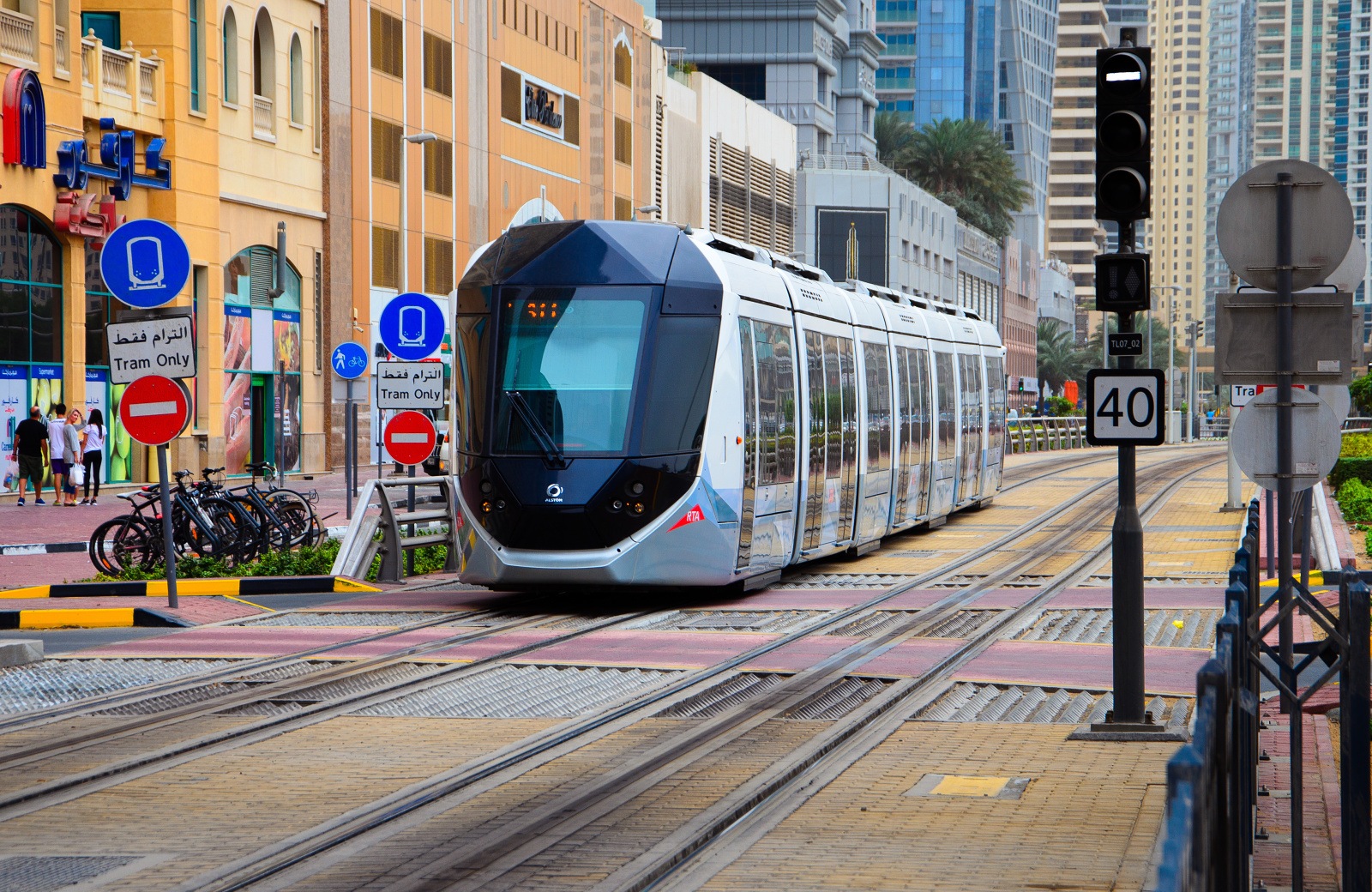
Transfer in Dubai
- private transfer Dubai airport - hotel - Dubai airport by TOYOTA PREVIA, CHEVROLET VENTURE, CHRYSLER 300C, CHEVROLET ROYAL CAPRICE, LEXUS cars.
- if interested, we will provide you with a transfer from Dubai airport - hotel - Dubai airport by luxury limousine according to your wishes (BMW 7, HUMMER, ROLLS - ROYCE, CADILLAC ESCALADE)
Transfer in Dubai by Helicopter
For information on helicopter transfer options from Dubai airport - hotel - Dubai airport, please contact our travel agency.Dining
Hotels and restaurants in the Emirates are renowned for their top cuisine and excellent food. Breakfasts and dinners are served buffet-style in hotels. The Dubai emirate in particular is famous for its gastronomic scene. You will find restaurants of all kinds here, especially Asian, Indian, Arabic, Lebanese but also Italian, French, American and modern fusion establishments. During the Muslim fasting month of Ramadan, you should refrain from consuming food and drink in public as a sign of respect and solidarity with the locals.
Among the traditional foods, drinks and dishes that you should try in the Emirates are hummus (chickpea paste), Arabic bread, shawarma meat, which is similar to Turkish kebab, dates and date desserts, camel milk, camel milk products and of course strong Arabic coffee.
Consumption of pork is forbidden to Muslims from the point of view of Islam. Nevertheless, pork is available in some shops and you can also find it on the menu of restaurants and hotels.
Activities and attractions
If you want to experience something unique and get to know the city of Dubai or another area of the Emirates from unconventional angles, then you are in the right place. Palm Island, the artificially created World archipelago, the landmarks Burj Khalifa and Burj Al Arab and much more await you when visiting this unexplored city.
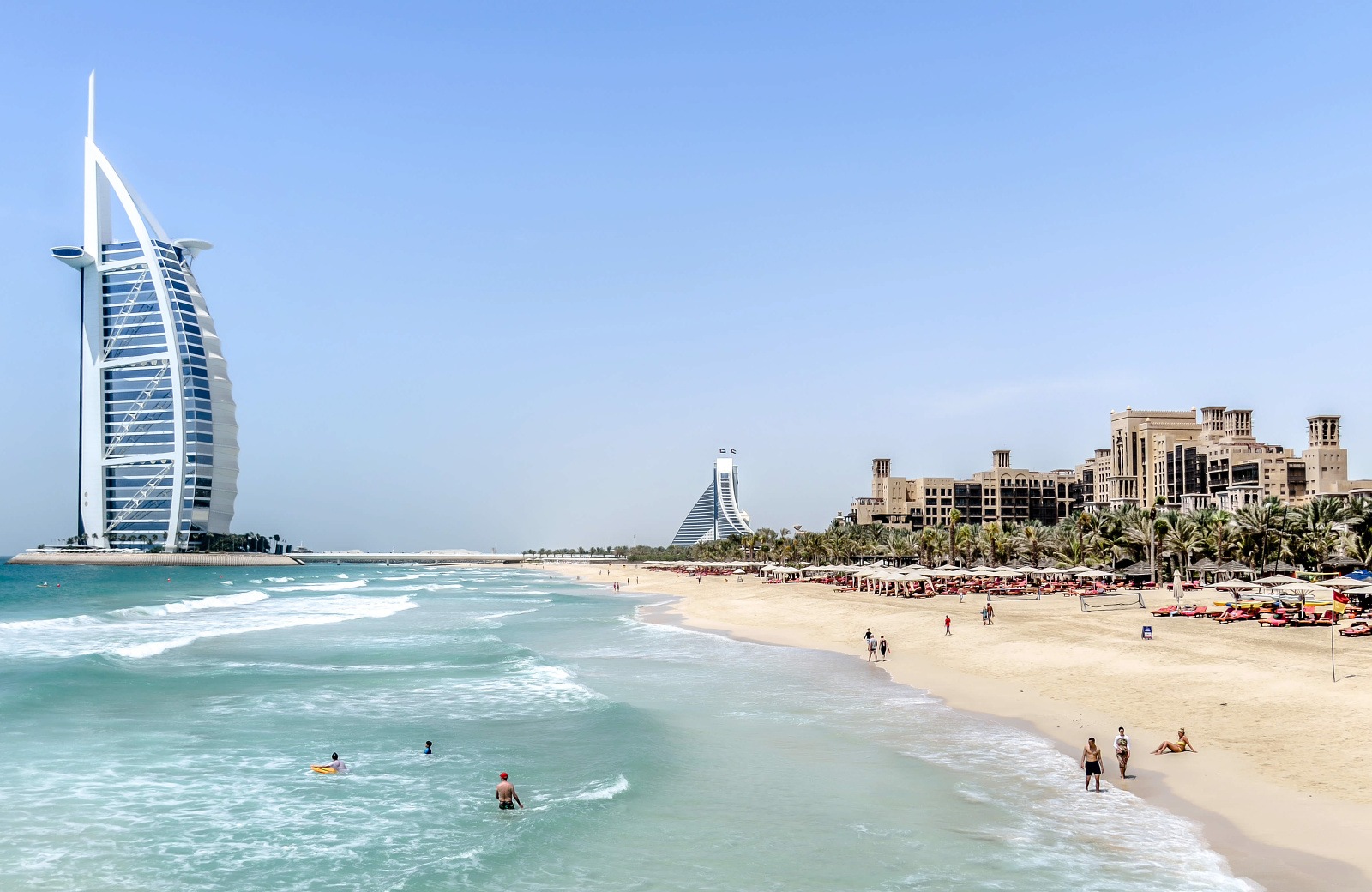
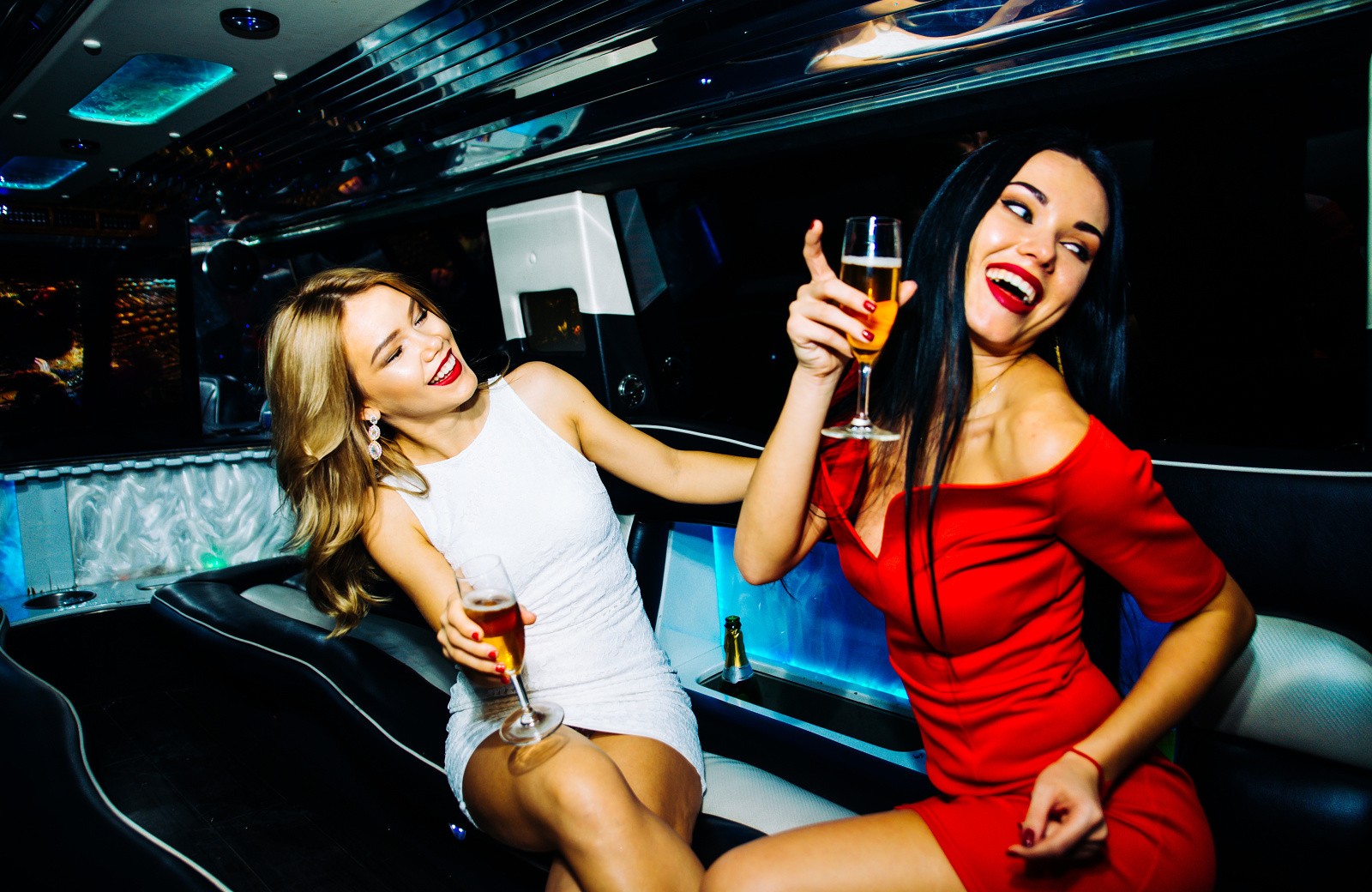
When shopping in the UAE, everything you can think of is available and shops are open until late night hours. The American slogan "Shop till you drop!" - "Shop until you drop," really has its justification here. All goods that come to the world market are available here, and usually earlier than to the Slovak market. Thanks to low taxes and low transport costs, the UAE is a true shopping paradise and many visitors from around the world come here just for this purpose. The main shopping centers in the UAE are Dubai, Abu Dhabi, Sharjah and Al-Ain.
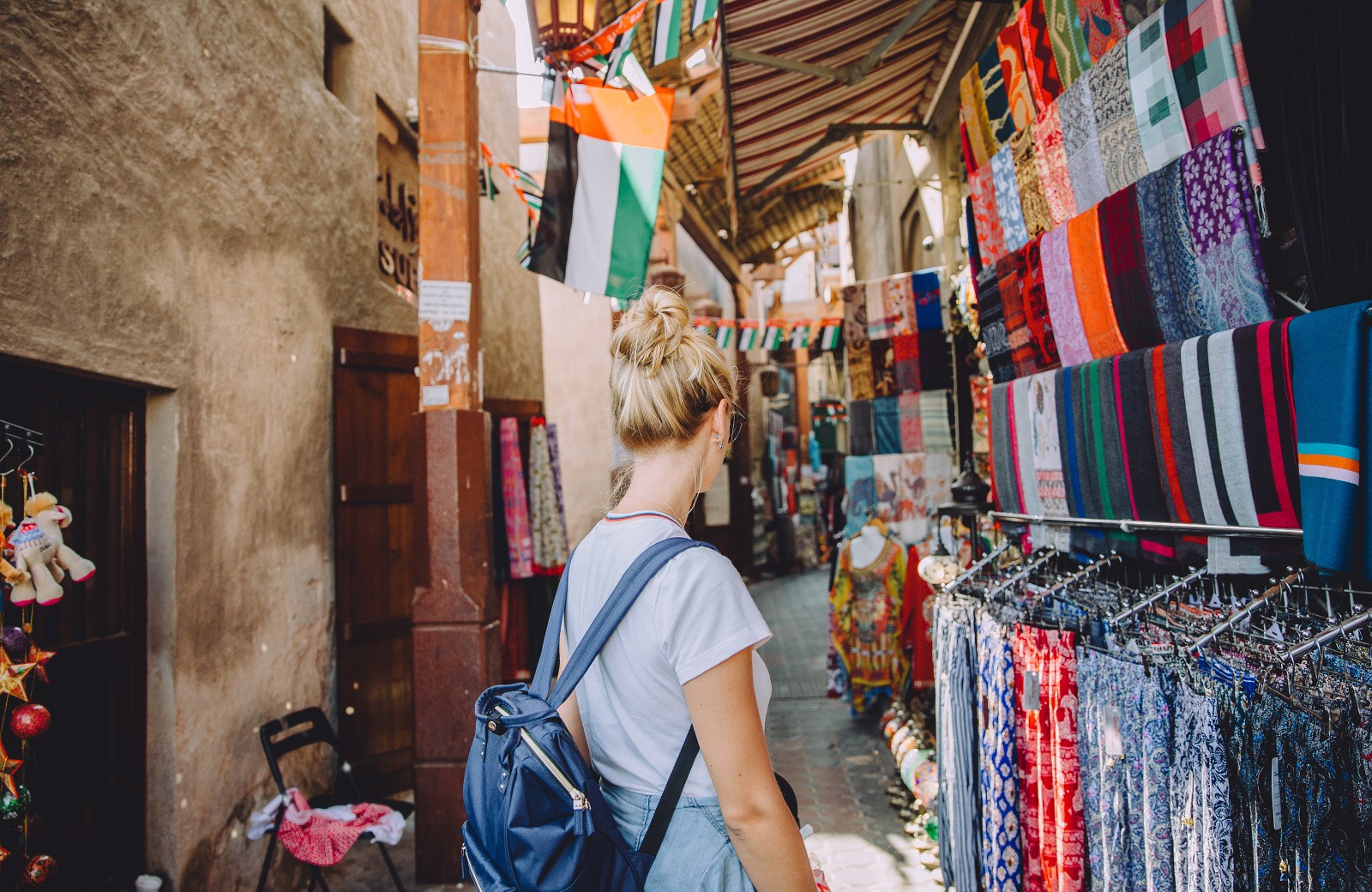
In air-conditioned shopping galleries, shopping is comfortable even in hot summer months
and besides shopping, many
cultural programs are prepared here. People in the UAE go to
shopping centers for
personal meetings and entertainment. Exceptionally cheap are Duty free
shops at airports and offer a very
wide and diverse
range of goods.
Opening hours in
supermarkets in the UAE are usually from
10:00 to 22:00.
On Thursday and
Friday, when it is a day of rest, large shopping centers close around midnight.
Outside shopping centers, shops usually have a lunch break from 1 p.m.
to at least 4 p.m.
After the lunch break
they are in operation
until late at night. During Ramadan
the sales time in the UAE is extended until
one o'clock in the morning.
The culture of the United Arab Emirates is very similar to other surrounding countries of the Persian Gulf. Islam strongly influences the entire social life, but unlike Saudi Arabia, the Emirates are a more liberal country. Despite strong urbanization, tribal organization is a significant control element. Family also forms the basic element of society here. Many traditional ways of life have been preserved in the Emirates to this day. Although few people still engage in them, they still make a living, for example, from fishing and pearl hunting. Wearing traditional clothing is also not unusual. It is typical for local women to wear at least a scarf over their hair when outside the home.
As in other countries of the Arabian Peninsula, traditional art forms such as pottery, weaving, and metalworking dominate. Handicraft production is a source of income for many rural residents who sell their products at markets in
cities.
Traditional art forms also include folk storytellers who tell stories. They are a popular form of entertainment even before television. Poetry also has its place, both classical and Bedouin. Traditional music, such as "huda", is
widespread alongside popular music. Originally it was sung during long journeys in caravans. Sport is strongly supported by the government in the Emirates. Horse racing and camel racing are popular. Sports such as football, tennis, rugby,
and sailing races are also popular.
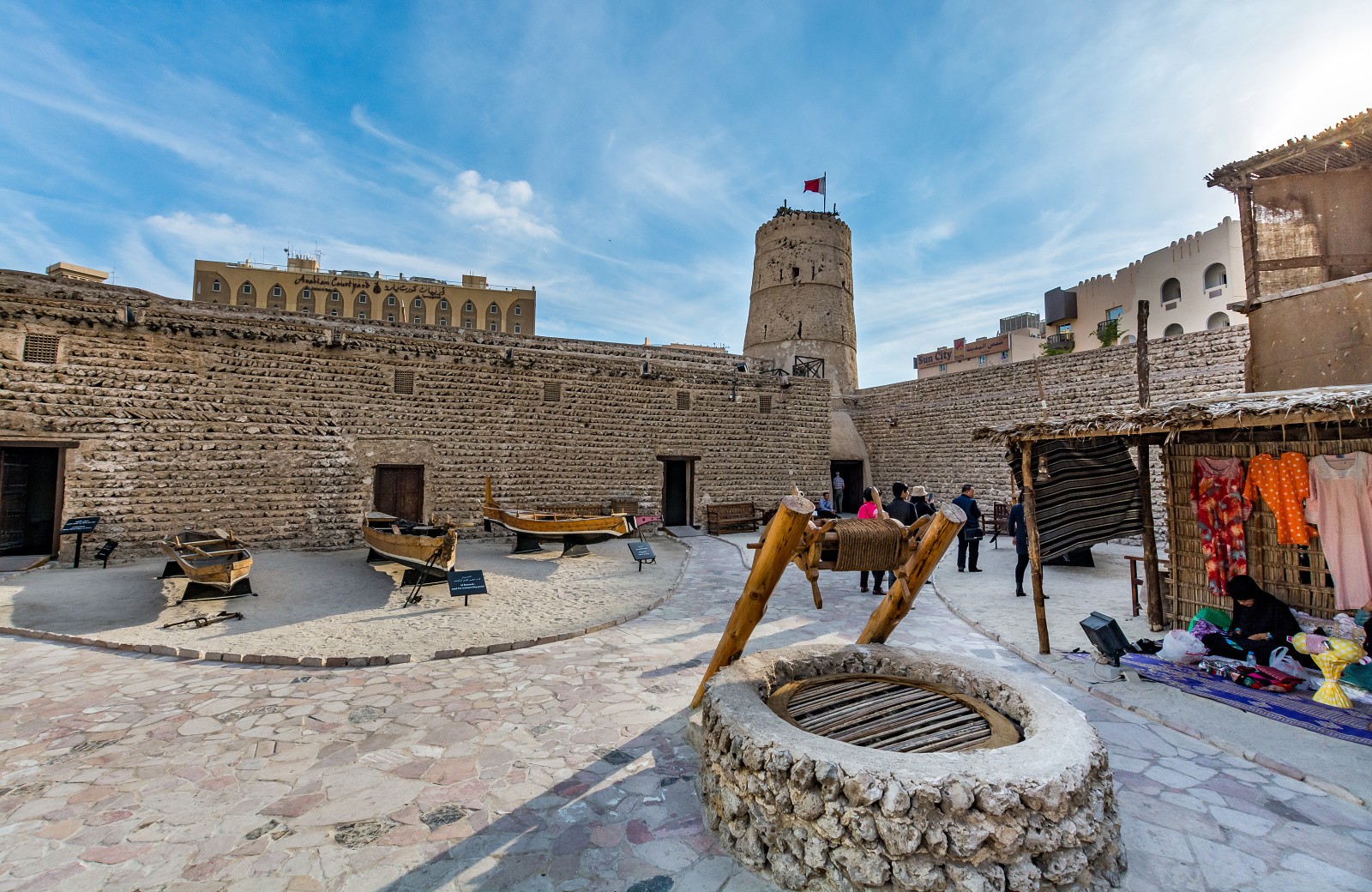
Despite the short history of the modern city, in Dubai you will find historical and cultural buildings that will introduce you to the life of Bedouins and pearl hunters from the times before the city became rich from oil and was discovered by tourists.
Dubai Museum
Dubai Museum is the most visited historical building in Dubai. It is located in Al Fahidi Fort from 1787 and captures the everyday life of residents before the discovery of oil. You will get acquainted with traditional houses, mosques, markets, date palm cultivation and desert and marine life. The exhibition about pearl hunters is popular.
Sheikh Saeed's House
The former official residence of Sheikh Saeed, the first ruler of Dubai and the great-grandfather of the current ruler Sheikh Mohammed bin Rashid Al Maktoum, currently hosts a unique collection of coins, historical photographs, stamps and documents capturing the history of Dubai. This historical house was built in 1896.
Heritage & Diving Village
Traditional pearl hunter villages are located right in the heart of the old historical part of Dubai by the river (Creek) and offer a glimpse into the life of pearl hunters and sailors. Among other things, you will find many souvenir shops here, from shells, through coffee pots for Arabic coffee, to traditional clothing. Heritage Village is an ideal and peaceful place where you can choose the most suitable gifts for your loved ones, with traditional bargaining you can get very pleasant prices.
Dubai Parks and Resorts
The Dubai Parks and Resorts entertainment complex offers children and people with young hearts a great selection of huge amusement parks, e.g. Motiongate, Bollywood Parks and Legoland. You can even relax on the entertainment and restaurant boulevard Riverland, which offers the best active entertainment for the whole family. You can even stay at the LAPITA hotel, in Polynesian style, which is located right between the amusement parks and it can be your most fun family vacation yet.
IMG World of Adventure amusement park
A day at IMG Worlds of Adventure, one of the newest and most adventurous amusement parks, will definitely put a smile on children's faces. Don't forget to bring comfortable shoes, because family attractions are located in an area as large as almost 28 football fields. During exciting rides at IMG, your favorite characters come to life, from the famous friendly Powerpuff Girls to the hero of Marvel comics.
KITE Beach
At Kite Beach, they are prepared for children. A skate park, outdoor trampolines, an adventure gym and a playground for the little ones await them here. You can swim with the children and collect shells and then have breakfast or lunch at the famous restaurant truck Salt or at one of the many restaurants on the beach along the running track. Parents can comfortably sit down and enjoy kite-surf shows and amazing views of the Burj al-Arab hotel while children play in the sand or on the adventure course at Wire World.
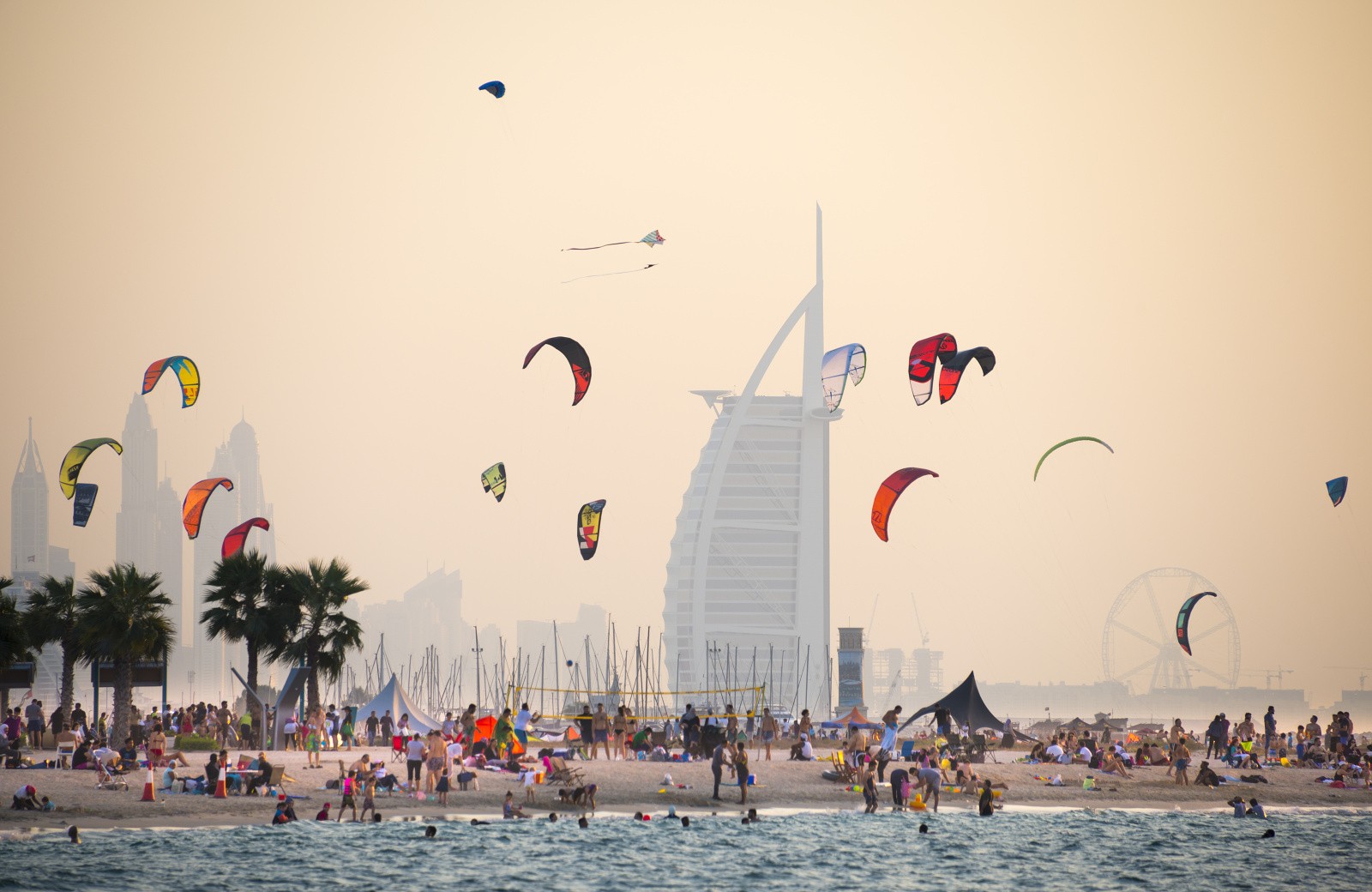
Pedestrian zone City Walk
City Walk is one of the most child-friendly shopping zones, including Hub Zero - a virtual gaming center with different zones for all age groups and The Green Planet - a closed ecosystem representing a tropical rainforest with more than 3,000 plants and animals. Don't miss the amazing district that combines entertainment, shopping, refreshments and much more in an unforgettable experience.
Atlantis Aquaventure
In the Aquaventure water park at the Atlantis the Palm hotel complex, both children and adults are guaranteed to enjoy adrenaline. Daredevils can try exciting slides in the park - one of them will shoot you directly into the shark lagoon! The little ones can cool off and have fun on the carousel or in the pool. When you want to take a little break from all the activities, you can walk around the winding channels or catch a tan on the private beach.
Dolphin Bay
Splash in the waves alongside one of the friendliest mammals at Dolphin Bay in the Atlantis the Palm complex. Social contact with these friendly sea dwellers can be recommended to swimmers of all age categories and abilities. Dolphin Bay is one of the most perfect dolphinariums in the world, which strives to educate visitors about wild animals and the need to protect their natural habitat. And when leaving, don't be surprised if the children claim they found a new best friend!
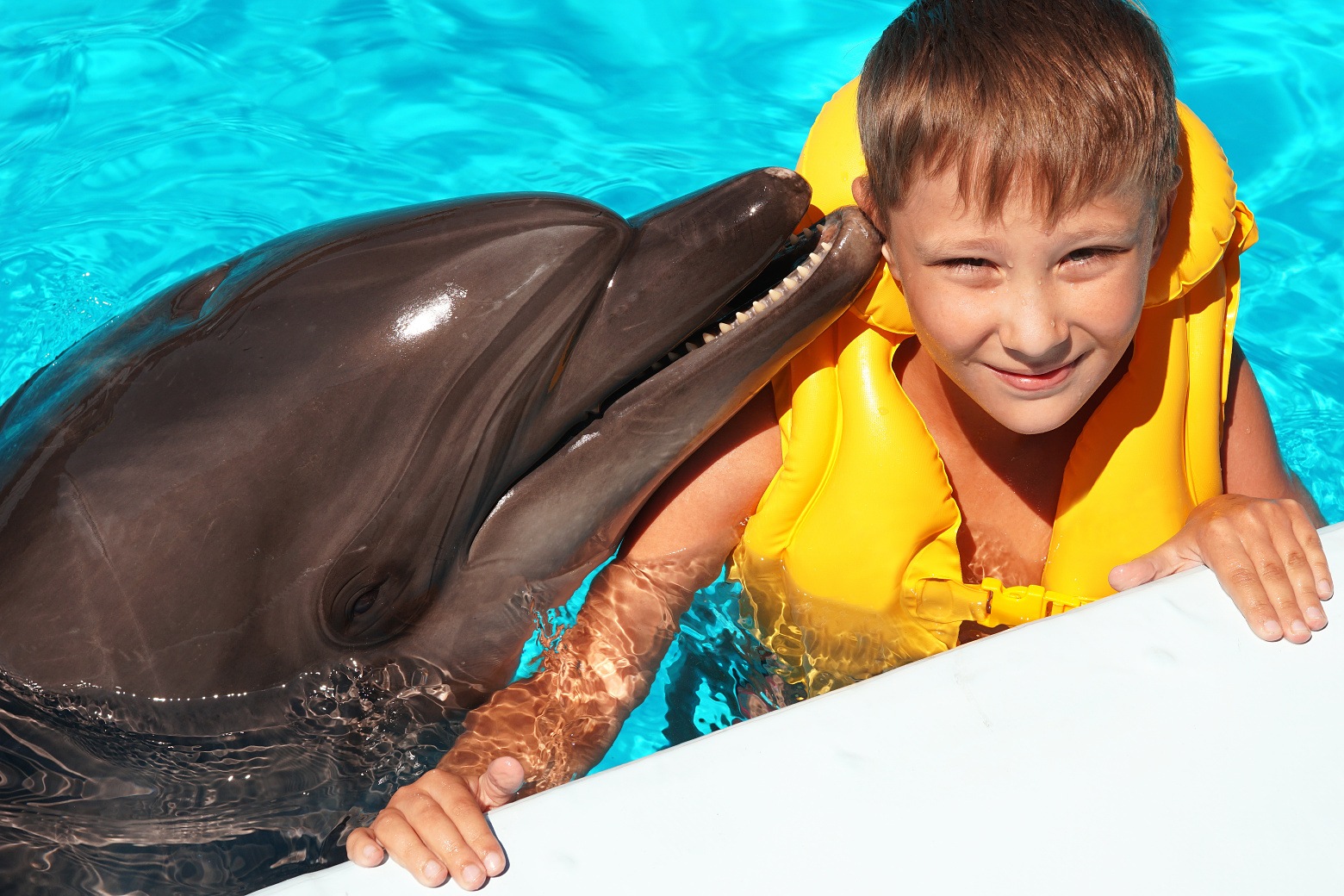
Wild Wadi Water Park
Cool off at Wild Wadi Water Park, which offers more than 30 attractions for the whole family. Take a ride on a water roller coaster, slide down a slide that defies the laws of gravity, or let yourself be carried away by a lazy current while admiring the stunning Burj al-Arab skyscraper. Younger visitors will enjoy the dedicated area with small slides, climbing frames and watering buckets.
Kidzania themed children's park
Located inside the Dubai Mall shopping center, this award-winning concept was designed as a scaled-down "adult world" in children's scale. KidZania is a popular educational complex where you will find paved streets, buildings and functioning economies. Watch children play adults and become firefighters, cooks and doctors, radio presenters, Emirates airline pilots or scientists mixing their own perfume.
Dubai Desert
Don't miss the opportunity for an unforgettable experience in the Dubai desert. You can ride on sandboards, on a camel or on a horse or go on a desert safari, simply enjoy a huge adventure with your children. If you want to extend your trip until night, you can camp under the open sky.
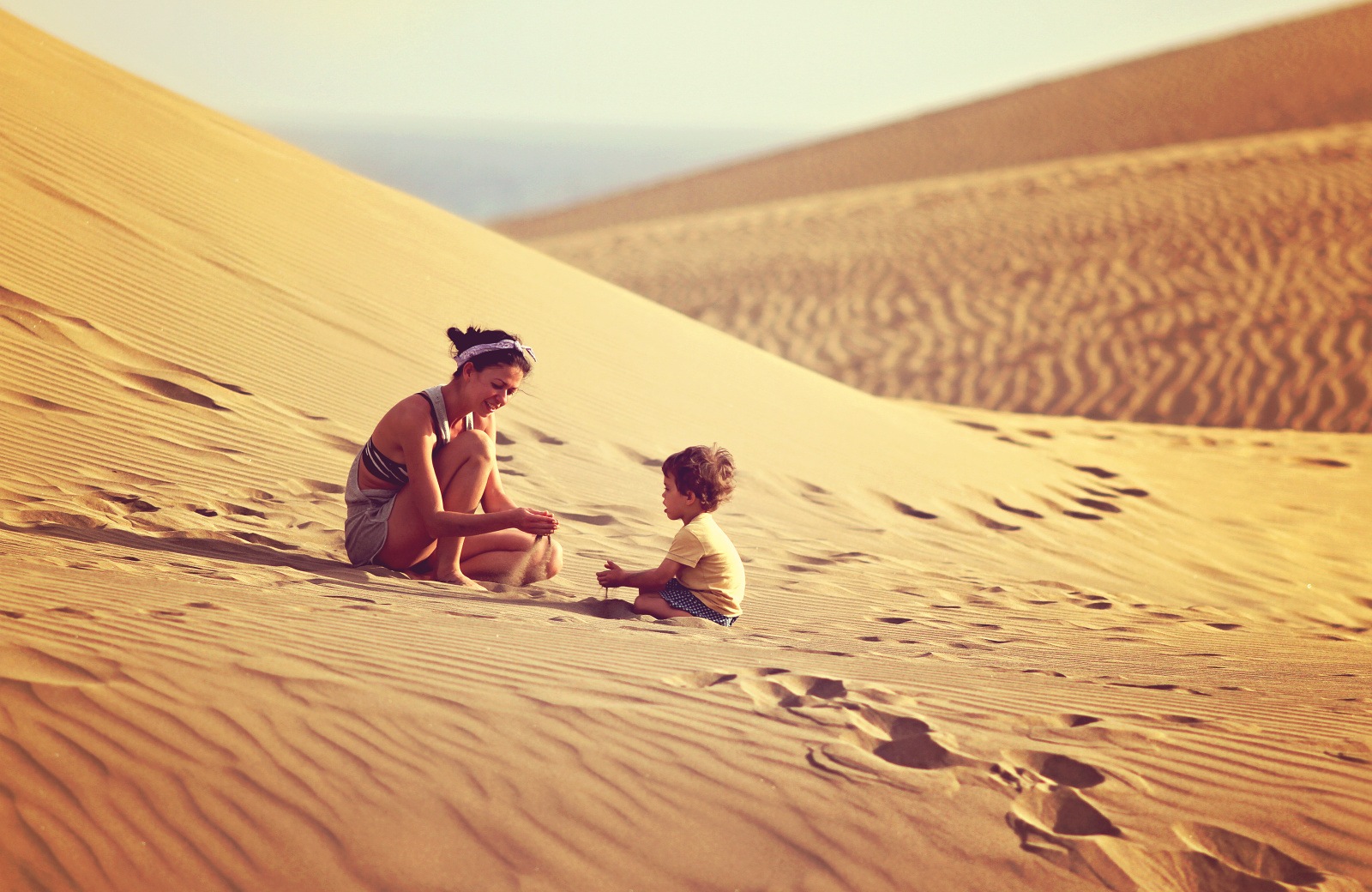
Ice rink
Ice skating in the desert? Yes, why not - you are in Dubai! The Dubai Ice Rink ice rink in the Dubai Mall shopping center has Olympic dimensions and is open to skaters of all age categories and abilities. Present instructors will help you get into the rhythm and become the king of ice. Older children will enjoy the best disco party on Dubai ice, where they will have the opportunity to perform a perfect triple Salchow to great music and flashing lights.
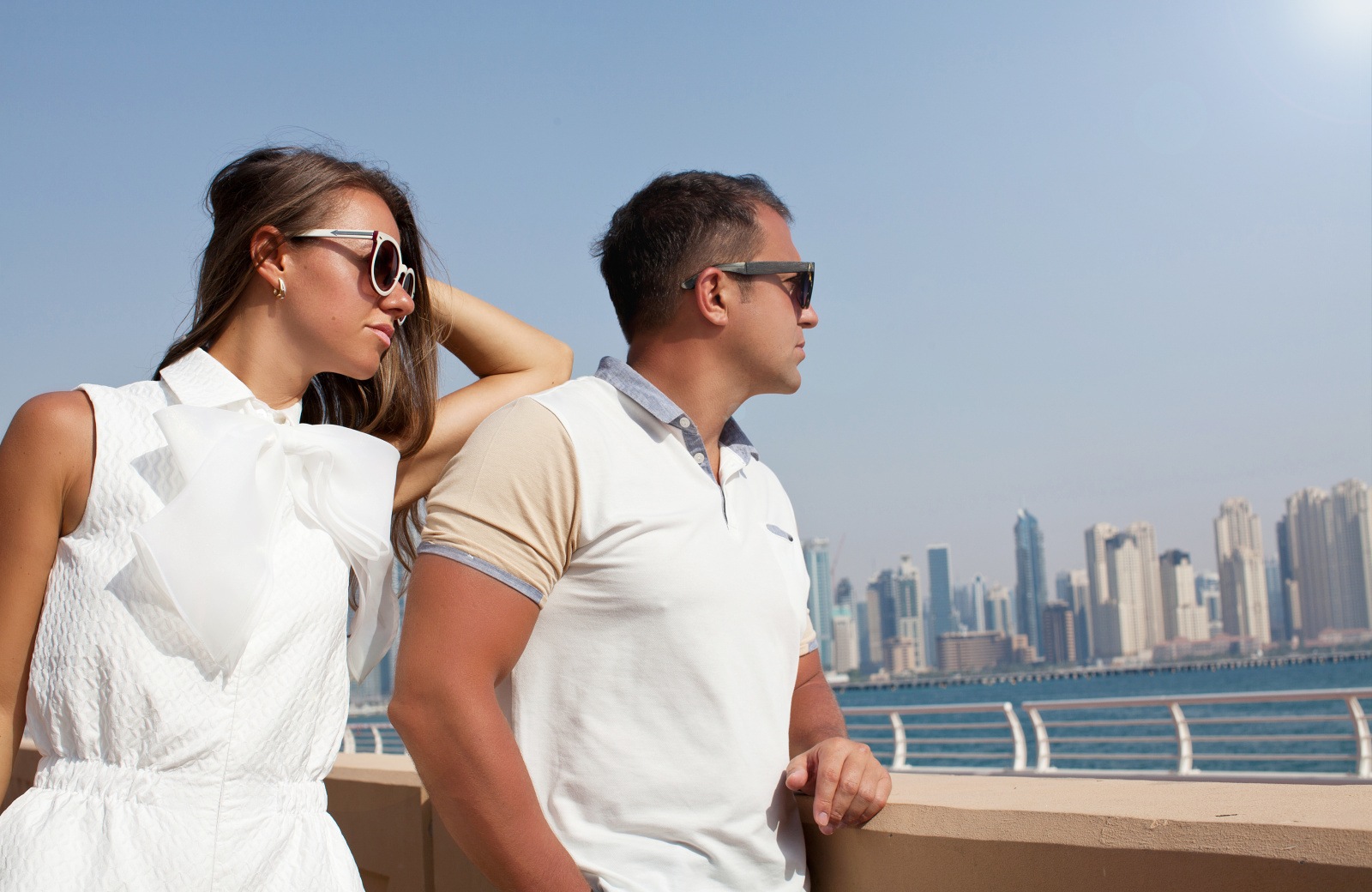
Hotel is the foundation of every quality vacation. If you crave romance, you raise the bar of choice higher. Choose a hotel that will amaze and at the same time create the right atmosphere. If you remain loyal to the Dubai emirate, hotels of renowned brands Jumeirah and One & Only are more expensive but on the other hand synonymous with top services and perfect luxury
2.Romantic dinners
Tastes of all continents meet in Dubai. The choice is up to you! The magical Asian restaurant Thipthara is built on Lake Burj Dubai and offers excellent food and the best view of the famous dancing fountain and panorama of the world's tallest building Burj Khalifa. Thipthara is part of the picturesque city resort The Palace Downtown, which you can find in our hotel offer
3.Beach relaxation
Enjoy each other and relax during the day on the beach. Hotels Madinat Jumeirah and Jumeirah Beach have the most beautiful beach in Dubai. If you are staying in a city hotel, head to one of the exclusive beach clubs Nikki Beach or O Gravity in Dubai Marina with your other half.
4.Wellness as a couple
Give yourself only the best for you and your loved one. Almost every premium hotel in the Emirates has its own wellness center with a wide range of massages and treatments of various orientations. Talise Spa is a wellness brand belonging to the Jumeirah hotel family. The Thalise Ottoman Spa wellness center at the Jumeirah Zabeel Saray hotel is among the largest and best in Dubai.
5.Desert adventure
A vacation in Dubai and the Emirates without a walk in the desert? Photos on dunes with a camel are no longer an exceptional experience. Give yourself something much more exclusive! Spending a night in the desert is an unforgettable experience for a lifetime. Hotels Bab Al Shams or Qasr Al Sarab desert Resort.
Ramadan
Are you enthusiastic travelers and enjoy learning about the customs and traditions of the places you visit? Don’t miss the unique opportunity to experience the biggest Muslim holiday and one of the most magical periods of the year in Dubai and throughout the United Arab Emirates.
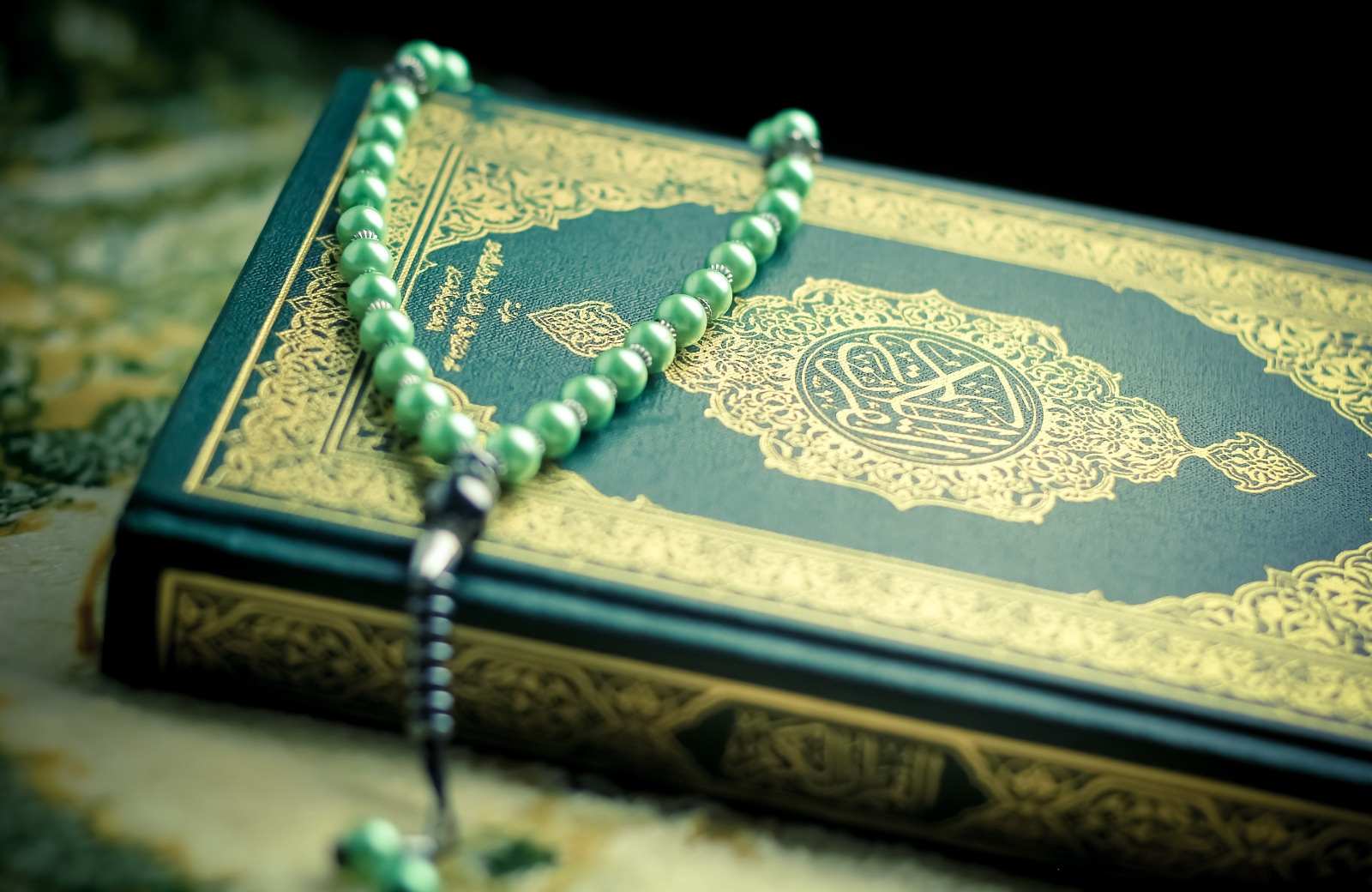
What is Ramadan?
Ramadan is the ninth month of the Islamic calendar. Its start falls approximately 10 days earlier each year on the Gregorian calendar. Muslims are required to fast for 30 days—from dawn to sunset. During the day, they refrain from eating, drinking, smoking, and other physical pleasures. Fasting is meant to strengthen both physical and mental resolve, discipline, and bring the believer closer to Allah. Moral values, solidarity with the poor, and good deeds are emphasized.
The end of fasting is announced each day by a mosque call at sunset. Cities come alive with celebrations—from the pre-dawn meal “SUHOOR” to the main evening meal “IFTAR.” Ramadan is a time of self-denial and joy, culminating in the final days with the holy festival “EID AL FITR.”
Will Ramadan affect your vacation?
The United Arab Emirates is modern and cosmopolitan, and tourists are welcome during Ramadan. During your stay, it’s recommended to observe certain guidelines. Hotel guests are not expected to fast, but showing respect is appreciated—avoid eating, drinking, or smoking in public during the day. Hotels offer privacy or designated areas so you can engage in activities discreetly. Beach resorts generally operate as usual, so Ramadan should not affect your holiday experience. Generally:
- Alcohol is served in hotels and bars only after sunset (around 19:00)
- Some à la carte restaurants operate on limited schedules
- Nightclubs and discos remain closed during Ramadan
Advantages of staying during Ramadan
Accommodation Costs
Ramadan is one of the cheapest periods of the year. You can enjoy luxury at relatively low prices that might otherwise exceed your budget.
Shopping Discounts
Dubai is famous for Ramadan shopping events in both major and smaller malls. You return with favorite items at a fraction of typical prices.
No Waiting
Cities like Dubai and Abu Dhabi are generally less crowded during the day. Attractions like aquaparks or monuments have minimal waiting times. You’ll rarely encounter locals before sunset.
Atmosphere
After sunset, the nightlife truly comes alive. Dinner IFTAR accompanied by enchanting light shows and lantern displays in themed areas offers a magical experience. We recommend booking ahead—and we’d be glad to help.


